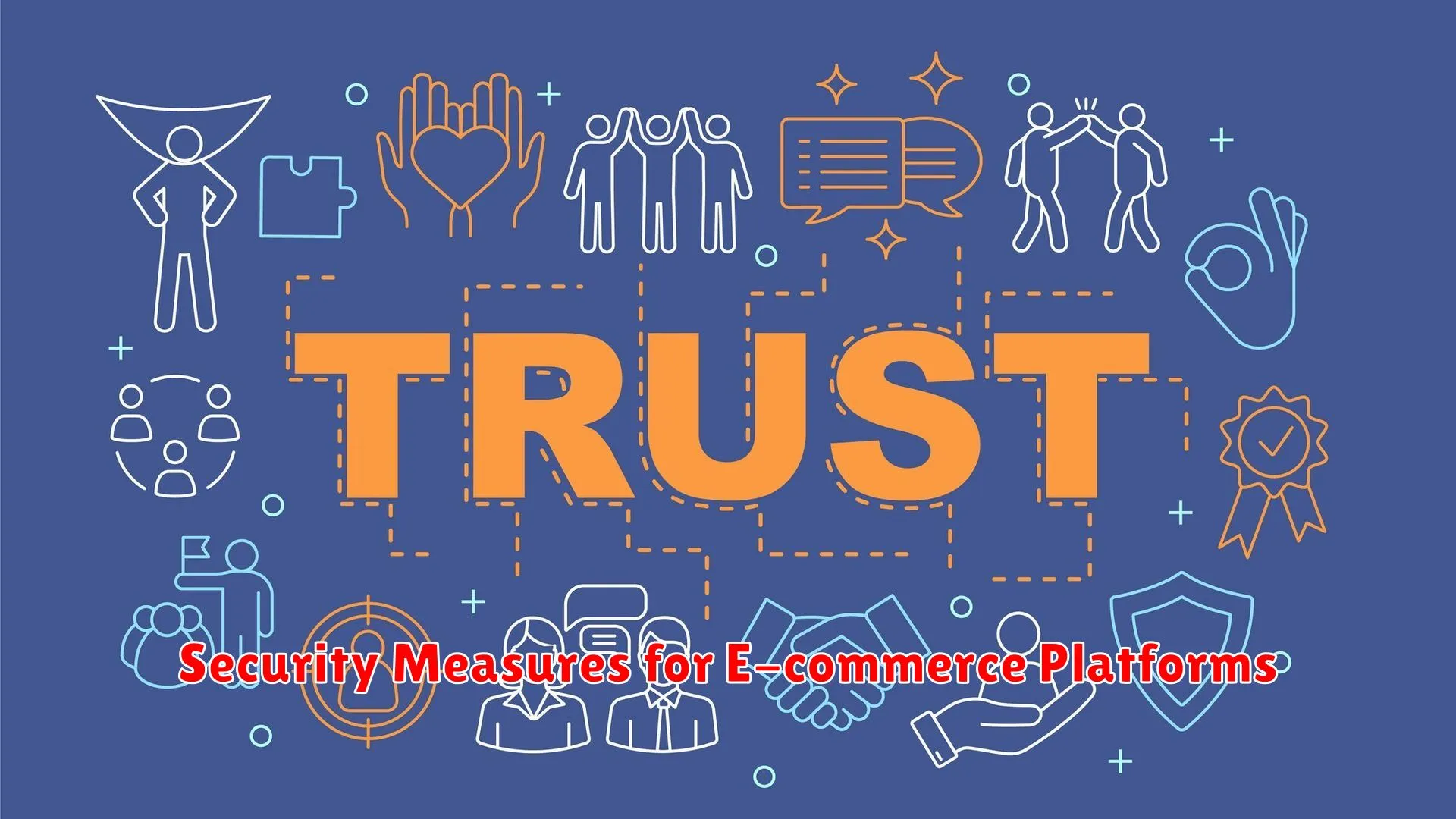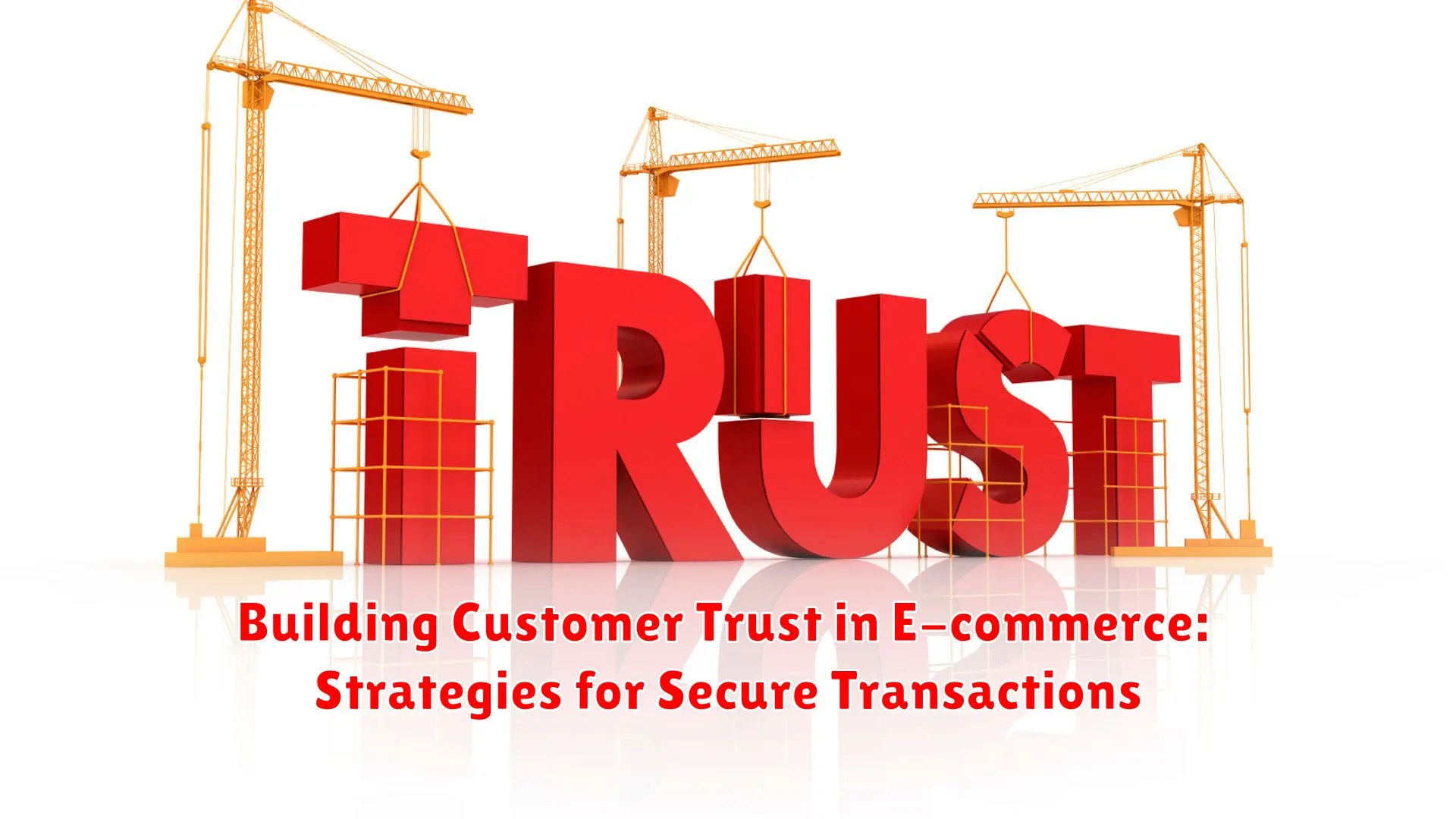Establishing trust is crucial in e-commerce. Explore effective strategies for ensuring secure transactions and building customer confidence in online purchases.
Understanding the Importance of Trust

In the world of e-commerce, trust serves as the foundation for successful transactions. When customers engage in online shopping, they are entrusting their personal and financial information to the e-commerce platform. Understanding the significance of trust is crucial for building a loyal customer base and fostering sustainable business growth.
Trust in e-commerce is a two-way street. Customers need to trust that their data will be securely handled, and businesses must also trust that customers will follow through with their purchases. Transparency and reliability are key factors that contribute to establishing trust between consumers and online retailers.
One of the primary reasons why trust is vital in e-commerce is security concerns. With the increasing number of cyber threats and data breaches, consumers are more cautious when sharing their personal information online. By prioritizing data encryption, secure payment gateways, and strict privacy policies, e-commerce platforms can instill confidence in their customers.
Moreover, trust plays a significant role in building brand loyalty and repeat business. When customers feel confident in the integrity of an e-commerce site, they are more likely to make repeat purchases and recommend the platform to others. This positive cycle of trust can lead to long-term success for online businesses.
Security Measures for E-commerce Platforms

In the digital age, security is paramount for e-commerce platforms to build trust among customers and ensure secure transactions. Implementing robust security measures not only protects sensitive data but also enhances the credibility and reputation of an online business.
1. Secure Socket Layer (SSL) Encryption
Utilizing SSL encryption is crucial for protecting customer information during online transactions. SSL certificates encrypt data transmitted between the user’s browser and the server, safeguarding it from cyber threats.
2. Two-Factor Authentication
Implementing two-factor authentication adds an extra layer of security by requiring users to verify their identity through multiple steps. This helps prevent unauthorized access to customer accounts.
3. Regular Security Audits
Conducting routine security audits enables e-commerce platforms to identify and address vulnerabilities promptly. Regular security checks help detect any weaknesses in the system before they can be exploited by malicious actors.
4. Strong Password Policies
Enforcing strong password policies such as complexity requirements and regular password changes can significantly enhance security. Encouraging customers to use unique passwords enhances the protection of their accounts.
5. Secure Payment Gateways
Using trusted payment gateways that are PCI DSS compliant ensures secure payment processing. Secure payment gateways encrypt financial data, reducing the risk of payment fraud.
Implementing SSL Certificates and Encryption

In the digital age, where online transactions have become increasingly prevalent, ensuring the security and privacy of customer data is paramount for any e-commerce business. One of the key strategies in building customer trust is the implementation of SSL certificates and encryption protocols.
SSL (Secure Sockets Layer) certificates play a crucial role in establishing a secure connection between a web server and a user’s browser. By encrypting data exchanged between the two parties, SSL ensures that sensitive information such as credit card details, login credentials, and personal data remain confidential and protected from unauthorized access.
By prominently displaying trust indicators such as the padlock icon and “https://” in the address bar, websites equipped with SSL certificates signal to customers that their data is being transmitted securely. This visual reassurance goes a long way in instilling confidence and trust in the e-commerce platform.
Furthermore, the adoption of advanced encryption protocols such as TLS (Transport Layer Security) further fortifies the security measures in place. TLS protocols enhance data integrity and confidentiality, preventing interception and tampering during data transmission.
Implementing SSL certificates and encryption not only safeguards customer data but also aligns with regulatory requirements and industry standards. Compliance with security protocols not only fosters trust among customers but also shields the business from potential data breaches and legal repercussions.
The Role of Payment Gateways

Payment gateways play a crucial role in building customer trust in e-commerce by ensuring secure and convenient transactions for online shoppers. These digital platforms act as intermediaries between the customer, the merchant, and the financial institutions involved in the transaction process.
One of the primary functions of payment gateways is to encrypt sensitive data such as credit card numbers, personal information, and transaction details. By utilizing Secure Socket Layer (SSL) encryption technology, payment gateways protect customer data from unauthorized access and potential cyber threats, enhancing the overall security of online transactions.
Furthermore, payment gateways provide a seamless payment experience for customers by supporting a variety of payment methods, including credit cards, digital wallets, and bank transfers. This variety not only caters to diverse customer preferences but also improves the convenience and accessibility of the payment process.
Another essential role of payment gateways is to facilitate real-time transaction processing and verification. By swiftly authorizing and processing payments, these platforms reduce the risk of payment delays or errors, leading to increased customer satisfaction and trust in the e-commerce ecosystem.
Educating Customers on Safe Online Shopping

When it comes to online shopping, ensuring the security of transactions is crucial for both customers and e-commerce businesses. One of the effective ways to build trust and enhance security in e-commerce transactions is through educating customers on safe online shopping practices.
1. Use Secure Websites: Encourage customers to look for the padlock symbol in the address bar indicating a secure connection (HTTPS) before entering sensitive information.
2. Update Security Software: Educate customers on the importance of keeping their devices and security software up to date to prevent cyber threats and malware attacks.
3. Phishing Awareness: Teach customers to be cautious of suspicious emails or messages asking for personal information and to verify the authenticity of websites before providing any data.
4. Strong Passwords: Emphasize the significance of creating strong, unique passwords for each online account to prevent unauthorized access.
5. Monitor Accounts: Advise customers to regularly monitor their transactions and report any suspicious activity to their financial institutions or the e-commerce platform.
By empowering customers with knowledge about safe online shopping practices, e-commerce businesses can foster a secure and trustworthy environment, ultimately strengthening customer trust and loyalty.
Building a Reputation for Reliability

Building customer trust in e-commerce relies heavily on establishing a reputation for reliability. When customers choose to make purchases online, they want assurance that their transactions will be secure and their information safeguarded. Here are some strategies to enhance reliability in e-commerce:
- Transparent Policies: Clearly communicate your company’s policies regarding data security, refund processes, and shipping information. Transparency builds trust with customers.
- Consistent Communication: Keep customers informed at every step of the purchasing process, from order confirmation to shipment tracking. Responsive customer service can reassure customers of your reliability.
- Secure Payment Options: Implement secure payment gateways and encryption protocols to protect customers’ financial information. Display trust badges and SSL certificates to signal a secure transaction environment.
- Reliable Delivery Services: Partner with reputable shipping providers to ensure timely and secure delivery of products. Providing accurate tracking information can enhance customer confidence in your e-commerce operation.
- Customer Feedback and Reviews: Encourage customers to leave reviews and feedback on their shopping experience. Positive reviews can strengthen your reputation for reliability, while addressing negative feedback promptly demonstrates your commitment to customer satisfaction.
Case Studies: E-commerce Sites with High Trust Ratings

When it comes to conducting secure transactions online, trust is a crucial factor for customers. E-commerce sites that prioritize building trust often see higher conversion rates and customer loyalty. Let’s explore some case studies of E-commerce sites that have excelled in establishing high trust ratings:
1. Amazon
As one of the largest E-commerce platforms globally, Amazon has invested heavily in implementing robust security measures to protect customer data. Their emphasis on transparency regarding payment processes, reliable customer service, and secure payment gateways has earned them a reputation for trustworthiness among consumers.
2. Shopify
Shopify stands out for its emphasis on data security and privacy protection. The platform provides users with HTTPS encryption, secure payment options, and regular security updates to ensure a safe shopping experience. These efforts contribute significantly to building trust with online shoppers.
3. Etsy
Etsy’s focus on authenticity and seller transparency has helped the platform establish a strong foundation of trust with its customers. By showcasing seller ratings and customer reviews, Etsy creates a sense of community and reliability that fosters trust among buyers.
These case studies highlight the importance of prioritizing security, transparency, and reliability in E-commerce sites to cultivate trust among customers. By implementing similar strategies, businesses can enhance their online credibility and attract more customers in the digital marketplace.
Conclusion: The Impact of Trust on E-commerce Success

Building Customer Trust in E-commerce is crucial for the success of online businesses. Trust plays a significant role in influencing consumers’ decisions to make purchases online. The level of trust that customers have in an e-commerce platform directly impacts sales, customer loyalty, and overall brand reputation.
Implementing strategies to establish and maintain trust with customers, such as secure payment options, transparent communication, and reliable customer service, can lead to increased sales and long-term relationships with consumers. Trust is the foundation of a successful e-commerce business and is essential in creating a positive online shopping experience for customers.
Conclusion
Implementing secure payment gateways, SSL encryption, and transparent policies are vital for establishing customer trust in e-commerce transactions.

